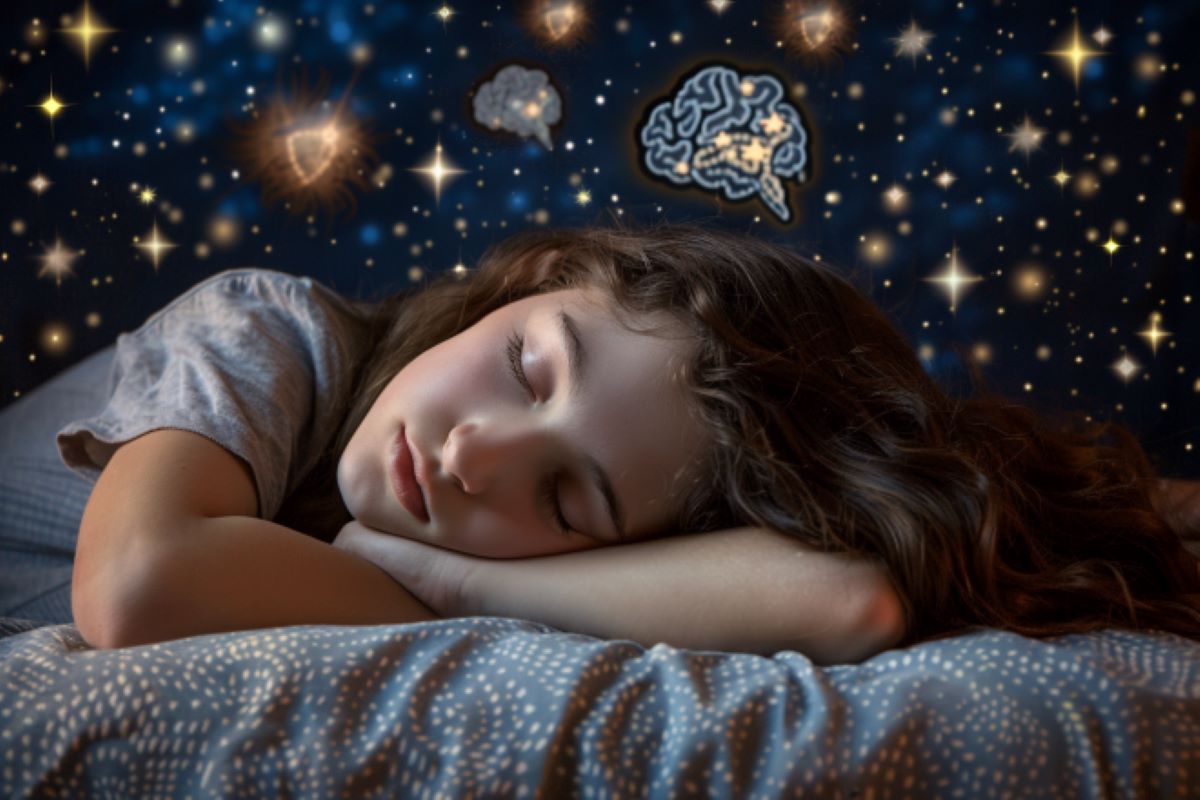Summary: A new study challenges the prevailing theory that sleep aids in the detoxification of the brain. Researchers found that the brain’s toxin clearance is significantly reduced during sleep and even more so under anesthesia, as shown by the slower movement and clearance of a fluorescent dye in the brains of mice.
Contrary to previous beliefs that sleep enhances the glymphatic system’s function, these findings suggest that being awake might actually be more effective in clearing brain toxins. This research calls for a deeper investigation into the role of sleep and its implications for conditions like dementia.
Key Facts:
- Toxin clearance rates dropped by 30% in sleeping mice and 50% under anesthesia compared to their awake counterparts.
- Previous studies, supporting sleep as a time for brain detoxification, used indirect measurement methods, making this direct study a significant pivot.
- The findings may reshape our understanding of sleep’s benefits, particularly relating to brain health and conditions such as dementia.
Source: Imperial College London
The brain’s ability to rid itself of toxins may actually be reduced during sleep, contrary to the leading scientific theory.
Over the past decade, the leading explanation for why we sleep has been that it provides the brain with an opportunity to flush out toxins. However, a new study led by scientists at the UK Dementia Research Institute (UK DRI) at Imperial College London indicates that this may not be true.

By measuring toxin clearance and movement of fluid in the brains of mice, they showed that it was markedly reduced during sleep and under anesthesia.
The researchers used a fluorescent dye, seeing how quickly the dye moved from one area of the brain to another, and was cleared from the brain. This enabled them to measure the rate of clearance of the dye from the brain directly.
They found that the clearance of the dye was reduced by about 30% in sleeping mice, and 50% in mice that were under anesthetic, compared with mice that were kept awake.
Prior to this, the leading theory was that sleep improves the clearance of toxins from the brain, which happens via the glymphatic system (a mechanism that flushes waste from the central nervous system). However, this has never been conclusively confirmed and previous studies relied on indirect means of measuring the flow of fluid through the brain.
According to the researchers, the latest findings are surprising and more work is now needed to understand exactly what’s happening, and why.
Their work is published in the journal Nature Neuroscience.
Professor Nick Franks, Professor of Biophysics and Anesthetics at Imperial College London, and co-lead of the study, said, “The field has been so focused on the clearance idea as one of the key reasons why we sleep, that we were very surprised to observe the opposite in our results.
“We found that the rate of clearance of dye from the brain was significantly reduced in animals that were asleep, or under anesthetic.
“As yet, we do not know what it is about these states that slows down the removal of molecules from the brain. The next step in our research will be to try to understand why this occurs.”
The size of molecules may affect how quickly they move through the brain, and some compounds are cleared through different systems. Therefore, the extent to which the findings are generalizable is not yet confirmed.
Professor Bill Wisden, Interim Center Director of the UK Dementia Research Institute at Imperial, and study co-lead explained, “Although we have shown that clearing toxins may not be a key reason why we sleep, it cannot be disputed that sleep is important.
“Disrupted sleep is a common symptom experienced by people living with dementia, however we still do not know if this is a consequence or a driving factor in the disease progression. It may well be that having good sleep does help to reduce dementia risk for reasons other than clearing toxins.
“The other side to our study is that we have shown that brain clearance is highly efficient during the waking state. In general, being awake, active and exercising may more efficiently clean the brain of toxins.”
Next, the researchers aim to uncover how sleep reduces the clearance of toxins from the brain in mice, and to explore whether their findings are applicable to humans.
About this sleep and neuroscience research news
Author: Ryan O’Hare
Source: Imperial College London
Contact: Ryan O’Hare – Imperial College London
Image: The image is credited to Neuroscience News
Original Research: Open access.
“Brain clearance is reduced during sleep and anesthesia” by Nick Franks et al. Nature Neuroscience
Abstract
Brain clearance is reduced during sleep and anesthesia
It has been suggested that the function of sleep is to actively clear metabolites and toxins from the brain. Enhanced clearance is also said to occur during anesthesia.
Here, we measure clearance and movement of fluorescent molecules in the brains of male mice and show that movement is, in fact, independent of sleep and wake or anesthesia.
Moreover, we show that brain clearance is markedly reduced, not increased, during sleep and anesthesia.







